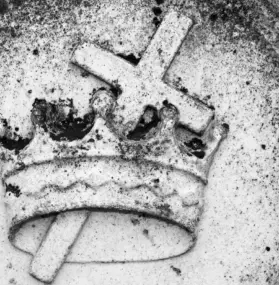- by Carrie Shaw
- on August 25, 2025
Humanity and the Myth of Inherent Immortality
There is no doubt we are more than just a body and a mind. There is something else, something that sets one person apart from another, even in the case of twins, who may outwardly appear identical in every way. Despite our shared genetics or family resemblances, each person is truly original – a distinct, unrepeated identity of mind, body, and soul.
Every life is uniquely itself, as our fingerprints attest. Fingerprints are one of the most fascinating features of the human body – we all have them, but, like snowflakes, no two people’s fingerprints are the same.
Developed while a baby is still in the womb (around week 10 of the pregnancy), our fingerprints are shaped by genetics and by small random factors (things like how the baby moves, pressure in the womb, and blood flow). While fingerprints are among the first physical markers of individuality, they are merely outward markers of the reality of a person’s unique genetic code, which is already complete at conception.
Biologically, a human embryo isn’t just a “potential life”; it is a distinct and separate identity, a living organism of the species homo sapiens, developing according to its own intrinsic design.
From the very moment of conception, there is continuity of life – what changes is not the essence of that identity, but the stages of its growth. Scripture affirms this truth: “Before I formed you in the womb I knew you, before you were born I set you apart” (Jeremiah 1:5). This is a topic I’ll look at in more depth in another article.
Yet while the spark of life that brings our mind and body into being comes from God, there is nothing to suggest that this spark is eternal. And indeed, our own experience seems to confirm this: we grow weary, our bodies degrade, we age, and in the end, we die.
Okay, but what about our souls? Our physical body might wear out and die, our brain might cease functioning, but surely something of us – the thing that makes us us lives on and is eternal? This question reflects a common assumption in parts of the church – that while our bodies perish, our souls are somehow inherently immortal.
Scripture presents a different picture: our life is not self-sustaining, but wholly sustained by God. If He were to withdraw His Spirit, we would return to the dust.
Further, the entire narrative of Scripture presents the contrast between life and death, eternal life as the gift of God to those who trust and obey Him, and death as the certain outcome of sin and disobedience – a story that begins on the very first pages of Scripture.
Scripture teaches that death and mortality are both universal and comprehensive. That death, when it comes, involves the mind, body, and soul.
This truth – that our life is both unique and present from conception, but not eternal – stands in contrast to the long-held assumption in some parts of the church: that humans possess an inherent immortality, a kind of built-in divine spark that ensures we cannot truly die.
Immortality // Death
When I speak of death, what do I mean?
Well, death, the result of mortality, can be understood in several distinct but overlapping ways:
Medically, death has been determined in different ways over time. Traditionally, it was the stopping of the heart and lungs – no pulse, no breath. In modern practice, “brain death” is often the clinical standard, when all brain activity irreversibly ceases, even if machines can keep the body’s organs functioning for a time.
Biologically, death is the inevitable outcome of processes built into our very cells, something I’ll talk about more in a bit. The body wears out as cells reach their limit of replication, telomeres shorten, and systems gradually break down. This is why, even without injury or disease, or despite leading “a healthy lifestyle”, ageing leads inexorably to death.
Biblically, death is described in deeper terms. Certainly, it is most visible physically. It is the reversal of what happened at creation, where God formed humanity from the dust and breathed into us the breath of life (Genesis 2:7). At death, “the dust returns to the ground it came from, and the spirit returns to God who gave it” (Ecclesiastes 12:7).
But Scripture also speaks of death in spiritual terms, as separation – separation from God because of sin (Ephesians 2:1), and ultimately, apart from Christ, the “second death” is that in which life is lost forever (Revelation 20:14). What is visible to us is but a shadow of the greater truth – that sin and separation from God bring death to every part of our being.
So how, then, did the church arrive at the myth of inherent immortality? And what does Scripture really have to say about life and death?
As is often the case, the beginning is probably the best place to start.
The Breath Of Life
Created in the image of God, full of promise and destined for glory, humanity was formed from the dust of earth. Like a potter shaping and molding clay beneath his fingers, God fashioned a human being from the light, sifting particles blowing across the surface of the earth. He breathed into the human the breath of life and, in a single, magical moment, this inanimate object became a living, breathing soul. Like everything he sees around him, this God-breathed life is what will sustain the human.
But the human is alone, without a friend and companion suited for him. Nothing in God’s creation is his equal; corresponding to him in all his attributes and capabilities. So God creates a woman, a worthy and appropriate counterpart to the man, ‘fashioned from a part of the man’s side’. She is the final masterstroke of creation, the finishing touch of the Creator’s hand.
Humanity’s purpose is to rule the earth on God’s behalf, to have authority over it and its inhabitants, and to steward it wisely and well. Our identity will be shaped by a close and intimate relationship with our Creator. We are to be His image bearers, filling the earth with His glory.
God sets humanity in a garden. The blueprint for human flourishing is expressed; access to all of God’s goodness, but also necessary acknowledgment of His sovereignty. “You are free to eat from any tree in the garden; but you must not eat from the tree of the knowledge of good and evil, for when you eat from it you will certainly die”.
Within this picture of paradise lies the certainty that a decision will come, a moment when humanity must face a simple yet profound choice.
Disobedience will bring death, but this very promise suggests its opposite is also true: obedience will bring life – the life God always intended for humanity, eternal and abundant.
“Dying, You Will Die”
The very structure of God’s command shows that life was not inherent to humanity but offered as the fruit of obedience. Humanity was created mortal – capable of death, but not destined for it. In that perfect paradise, our mind, body, and soul were yet untouched by sin, disease, and decay.
There is no reason to suppose that any part of us was inherently immortal. Eternal life still lay ahead as God’s promise, contingent on obedience to His word, a truth consistently affirmed throughout Scripture.
The phrase used in Genesis 2:17; “in the day that you eat of it, you will surely die“, has the idea, in the Hebrew language, of “dying you will die“. Its meaning is not of an immediate effect but the initiation of a process leading to death; an apt description of the inevitable result of cellular aging that we see at work in the human body, and which we call mortality.
We know the story well.
Adam and Eve chose wrongly. Their rebellion and disobedience brought about the dreadful reality God had warned of. Sin entered the world, and with it came death, close on its heels. Mortality, instead of remaining only a possibility, became a reality reflected in our DNA, the outward sign of our inward spiritual separation from the source of life.
The Hayflick Limit
A concept called the Hayflick Limit was put forward in 1965 by Leonard Hayflick which explains the mechanisms behind cellular aging. This concept states that a normal human cell can only replicate and divide 40-60 times before it cannot divide anymore. It will then break down by programmed cell death or apoptosis.
During cell replication, telomeres, sequences of DNA that protect against irregularities in normal DNA function, begin to shorten at the ends of the chromosomes. These telomeres act like a buffer zone but gradually shorten over time until eventually the cells themselves become degraded and can no longer replicate correctly. Telomeres, therefore, are part of the built-in biological clock that causes aging, body deterioration and death.
Integral to this process is telomerase, which is an enzyme that repairs telomeres and is present in various cells in the human body, especially during human growth and development. However, this enzyme is ‘switched off’ in adult humans.
Although a telomerase-activating compound was recently discovered, telomerase rejuvenation in adults is directly linked to the development and spread of cancers throughout the body.
While it might be possible to reactivate telomerase in humans, this would also increase the development and growth of cancers – certainly not an optimal outcome. So, despite advances in science and medicine, the ‘cure for death’ eludes us. It seems that death is hard-coded into our DNA and we cannot fight against it.
In this, modern science simply confirms what Scripture has already declared – death is the inescapable result of sin.
The Spread Of Death: Both Universal and Comprehensive
Humanity did not simply begin to die physically that day. The spiritual heart of humanity became darkened and sick, bent towards self-will, misaligned with God’s own heart, and in desperate need of healing and regeneration. Our union with God was broken, and we were cut off from His presence.
Paul captures the weight of this moment when he writes, “sin came into the world through one man, and death through sin, and so death spread to all people, because all sinned” (Romans 5:12).
That spreading death that Paul describes is not only confined to the body. Our minds are darkened (Ephesians 4:18), our hearts are corrupted (Jeremiah 17:9; Romans 1:21), with every part of us subject to decay (Romans 8:10). As Paul also declares, “as in Adam all die” (1 Corinthians 15:22).
Death, then, is comprehensive and universal: it encompasses mind, body, and soul, leaving humanity in desperate need of the life that only Christ can give. As Paul reminds us elsewhere, “the wages of sin is death, but the gift of God is eternal life in Christ Jesus our Lord” (Romans 6:23).
Death By One, Life Through Another
Just as death spread to all through Adam, so life now comes through one man, Jesus Christ. Paul says it plainly: “as one trespass led to condemnation for all people, so one act of righteousness leads to justification and life for all” (Romans 5:18).
The New Testament repeatedly presents Christ as the true answer to the disaster of Eden – the obedient Son who restores what Adam lost. Jesus himself said that he had come “so that they [we] might have life and have life abundantly.” He did not mean only physically; primarily he meant spiritually.
This is the thread that runs consistently through the New Testament: the announcement of God’s rule – in contrast to the rejection of His sovereignty in Eden; the forgiveness of sins – a reversal of humanity’s rebellion and guilt; and the promise of life eternal through faith and trust in Jesus’ perfect obedience – the resolution and completion of the promise first given in Eden.
What was lost in Eden – fellowship with God, wholeness of body, mind, and soul, and the promise of life unending – is restored in Jesus.
Again, as in Eden, the reversal is not instant. We still live in a broken world, a world that God is even now also rescuing and redeeming. Paul reminds us that “the whole creation has been groaning together in the pains of childbirth until now,” as it longs for “the redemption of our bodies” (Romans 8:22-23).
The healing has begun in Christ, but its fullness awaits the day when death, that last great enemy, is finally swallowed up in victory.
So what does this mean for those who put their faith in Jesus Christ? What happens, not just when we die but in the here and now? And, the question must be asked, what happens to those who don’t choose to put their trust in Jesus, both now and in the life to come?
Made Alive In Christ
When we place our trust in the work of Jesus, we are forgiven. Our relationship with God is restored, and we are welcomed home as his beloved sons and daughters.
Scripture speaks at length about this change in identity. It calls it a rescue, and likens it to dead men coming alive, or to people being born again. Paul writes that we are transferred from the dominion of darkness into the kingdom of light, once dead in our sins but now made alive with Christ.
The Holy Spirit takes up residence within us, making His home in the very centre of our being. We are made new – a different kind of human – being reshaped day by day into the likeness of Jesus.
But this is only the beginning of the long process of renewal, the lifelong work of sanctification through the Spirit’s presence within us. Paul puts it this way, “outwardly we are wasting away, yet inwardly we are being renewed day by day” 2 Corinthians 4:16.
We are still bound by time, as God works out His purpose, and for many of us, our mortal bodies will wear out before the appointed day of our Lord’s return. But Paul reminds us, “we will not all sleep, but we will all be changed – in a flash, in the twinkling of an eye, at the last trumpet” (1 Corinthians 15:51–52).
The resurrection – the hope of every Christian – is the grand conclusion to our tale of rescue and renewal, where our mortal bodies will be clothed in immortality and death will be swallowed up in glorious eternal life.
Resurrection is a topic worthy of an article in its own right, and I’ve written more about it here. But this is why the New Testament authors consistently speak of resurrection and immortality in the same breath – it’s not something we already possess, but something to be put on at the final day.
What happens in the here-and-now for those who put their trust in Christ?
We are saved, we are being saved, and we will be saved.
Sin is forgiven – we have confidence to enter the Holy Place, right into the presence of God (Hebrews 10:19-22). New life is assured to us, the down payment of which is the Holy Spirit’s presence and work in us (Ephesians 1:13-14). And the promise of eternal life is held out to us, if we abide faithfully in Jesus.
Jesus says “Abide in me, and I in you. As the branch cannot bear fruit by itself, unless it abides in the vine, neither can you, unless you abide in me” (John 15:4). The very image Jesus gives shows dependence: the branch has no life apart from the vine.
And again, in John 6:39-40, Jesus says, “This is the will of him who sent me, that I should lose nothing of all that he has given me, but raise it up on the last day. For this is the will of my Father, that everyone who looks on the Son and believes in him should have eternal life, and I will raise him up on the last day.”
Eternal life is not automatic; it is a gift granted through union with Christ, secured by His resurrection and given to those who remain in him at the last day.
Cut Off From Life – The Fate Of The Unredeemed
And what happens to those who choose not to put their trust in Jesus?
They remain, Scripture teaches, “the children of wrath” (Ephesians 2:3) – still under the curse and condemnation of Eden, “dead in their sins” (Ephesians 2:1), unredeemed in their relationship to the source of all life, and destined for corruption, decay, and “the second death”, from which there is no return (Revelation 20:14). The writer of Hebrews observes, “How will we escape if we ignore so great a salvation? This salvation, which was first announced by the Lord, was confirmed to us by those who heard him” (Hebrews 2:3).
This is the sobering reality for every person without God’s saving work: life in its entirety – mind, body, and soul – comes to an end. Jesus underscores this when he warns us not to fear those who can kill the body but cannot touch the soul. Rather, he says, we should fear the One who can destroy both soul and body in hell (Matthew 10:28).
And it is, in fact, our soul that we should be most concerned about, for it too is not indestructible but can be brought to an end under God’s judgment.
There is no “life in the next” for those who refuse Christ. Already cut off from God in this life, they remain dead in their sins and will enter the second death – the final separation from the source of life for all eternity.
So, Where Does The Idea of Inherent Immortality Come From?
The idea of an immortal soul doesn’t come from Scripture but from outside influences, mainly Greek philosophy. Thinkers like Plato taught that the soul is a divine, immaterial essence, trapped in the body but destined to live on forever once freed.
Once Christianity started spreading into the Greek-speaking world, some early theologians began blending this idea with biblical teaching. Over time, the assumption of an inherently immortal soul took root in parts of the church, even while resurrection was still upheld as central to the Christian faith.
But biblically, life is always God’s gift – “He alone has immortality” (1 Timothy 6:16). Human beings are not described as inherently immortal; rather, immortality is something that is put on at the resurrection – certainly the great hope of Christianity, but not ours yet (1 Corinthians 15:53). This is why Jesus’ gift of life matters so much – because apart from him there is no other source of immortality.
If anyone thinks the soul is immortal, it’s usually because they’re drawing (consciously or not) from Greek philosophy rather than from the testimony of Scripture.
A Final Note
If you are reading this article (and thank you for being here!) and are not yet a believer or follower of Jesus, perhaps these words have stirred some serious reflection for you. Maybe you’ve never really considered your own mortality, or thought deeply about what that mortality points to.
Or perhaps you have given it some thought, but haven’t really been sure what the cure is or what the first step might be.
Let me share with you some good news! Jesus is the answer! He’s the cure for our condition, he’s the bridge that makes a relationship with God possible, and he’s the life that we all need, that goes on and on forever, abundant and eternal.
If you want to chat with someone about what that means for you, how to take hold of that gift, and how to make your way home, please reach out – I’d love to chat with you.






